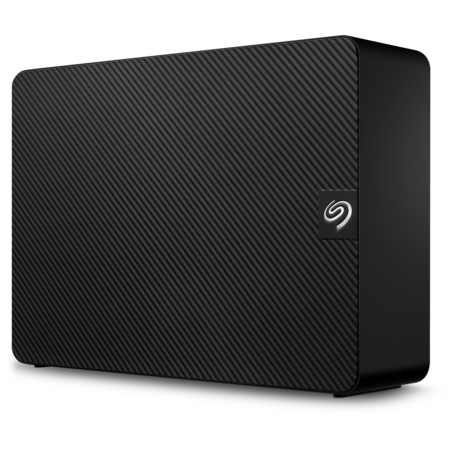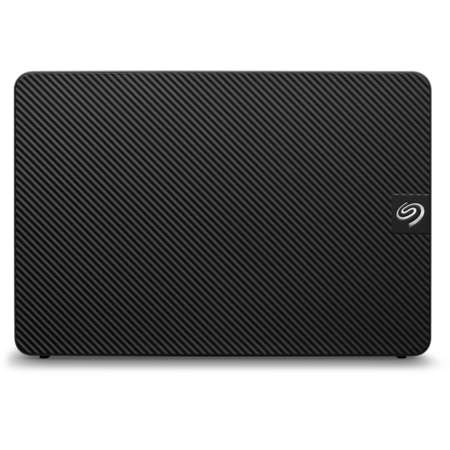Seagate has
26TB Seagate External USB 3.0 Desktop Hard Drive (STKP26000400) on sale for
$249.99.
Shipping is free.
Thanks to Community Member
SplendidSeed435 for sharing this deal.
About this product:
- Easy-to-use desktop hard drive—simply plug in the power adapter and USB cable
- USB 3.0 allows fast file transfers for efficient data management
- Drag-and-drop file saving right out of the box
- Automatic recognition of Windows and Mac computers for simple setup (Reformatting required for use with Time Machine)
- Enjoy peace of mind with the included limited warranty and Rescue Data Recovery Services



Leave a Comment
Top Comments
Edit: I should also add, if you visit the Seagate website on your mobile device (and possibly incognito), you should be presented with a newsletter signup offer for an additional 10 percent off.
These drives are great overall, although I couldn't reach the speeds mentioned by other user. Mine consistently runs around 150-180 on a 2.5GBe NIC. They're great (not as great as Exos, though), and I haven't encountered any errors or failures in the past six months.
I suppose it would be a suitable choice for a beginner who is on a budget to build a home NAS. I recommend purchasing two for RAID1 redundancy.
57 Comments
Sign up for a Slickdeals account to remove this ad.
Our community has rated this post as helpful. If you agree, why not thank CaesarOfSalads
Edit: I should also add, if you visit the Seagate website on your mobile device (and possibly incognito), you should be presented with a newsletter signup offer for an additional 10 percent off.
Our community has rated this post as helpful. If you agree, why not thank ILikeSDeals123
These drives are great overall, although I couldn't reach the speeds mentioned by other user. Mine consistently runs around 150-180 on a 2.5GBe NIC. They're great (not as great as Exos, though), and I haven't encountered any errors or failures in the past six months.
I suppose it would be a suitable choice for a beginner who is on a budget to build a home NAS. I recommend purchasing two for RAID1 redundancy.
These drives are great overall, although I couldn't reach the speeds mentioned by other user. Mine consistently runs around 150-180 on a 2.5GBe NIC. They're great (not as great as Exos, though), and I haven't encountered any errors or failures in the past six months.
I suppose it would be a suitable choice for a beginner who is on a budget to build a home NAS. I recommend purchasing two for RAID1 redundancy.
150 to 180 on a 2.5Gb NIC? The big B is bytes little b is bits. So you are running a 2.5 Gigabyte NIC? Also the other guy was talking about actual drive speed not transfer speed over a network…. Which is going through a bunch of other layers than the storage bus and connection. Now you know and knowing is half the battle
Our community has rated this post as helpful. If you agree, why not thank mekkis
If someone doesn't want to de-case these they can get 24TB bare drives for the same price. Specifically. ST24000DM001
Sign up for a Slickdeals account to remove this ad.
And you're plain wrong about using the network to test throughput, it's perfectly fine and an established norm. Especially if it's tested on a network from an endpoint both known to not be a bottleneck. And alot of NAS devices don't have built-in speed tests without SSH'ing in, so network transfers maxing out ~310MB/s (theoretical limit of 2.5Gb) are a surefire way to saturate a spinning drive or two (especially on writes).
"Going through a bunch of other layers" is technically true but irrelevant so stop trying to sound smarter than you are. Every test you run on a Windows (edit:or Mac/Linux/etc) machine is "going through" many subsystems. But even testing from a very modest machine with an ooollldddd SATA 2 SSD - released in 2004 with a 300MB/s limit - would basically ensure it's not the endpoint being the bottleneck.
And you're plain wrong about using the network to test throughput, it's perfectly fine and an established norm. Especially if it's tested on a network from an endpoint both known to not be a bottleneck. And alot of NAS devices don't have built-in speed tests without SSH'ing in, so network transfers maxing out ~310MB/s (theoretical limit of 2.5Gb) are a surefire way to saturate a spinning drive or two (especially on writes).
"Going through a bunch of other layers" is technically true but irrelevant so stop trying to sound smarter than you are. Every test you run on a Windows (edit:or Mac/Linux/etc) machine is "going through" many subsystems. But even testing from a very modest machine with an ooollldddd SATA 2 SSD - released in 2004 with a 300MB/s limit - would basically ensure it's not the endpoint being the bottleneck.
Lol. Just pointing out the guy was talking about the speed of the hard drive… not the speed of the drive in a non-specific network attached device. You could have a 1000GB/s speed drive on a 2.5Gb NIC and its still going to go the speed of the network. Typos matter. So do conversion mistakes. What you think is not important when people are making purchasing decisions is the point of my comment. What you think of snark is my attempt at adding levity. Like saying "Pork chop sandwiches". While my comment is meant to be informative… you started yours with a combative remark. So yeah …. Keep on attempting to troll there buddy. I doubt your comment helped anyone
Hahaa i have to use a similar analogy when explaining what a slow drain devices is on a fabric and how queue length and response time is different but how they impact application performance
Historically, Seagate's have failed more than Western Digital's in my experience, but my failure rate has been low overall on all brands.
I need to do some massive consolidation of my files, since I have backups, or backups, of backups, and it all adds up quick. Time to buy 2-3 of these, mirror the data, and consolidate the rest of my herd I am thinking. Anyone do this recently? I have too many drives running and need to slim things down. I am wise enough to have backups of backups, so I'm thinking I'll do major sorting with 2 drives mirrored locally, then put one off-site with a mirror of the data as well.
Sign up for a Slickdeals account to remove this ad.
But if you are a SAN expert then you know it's an irrelevant strawman to say "if you benchmark a 1TB/sec drive on a slower network, the network is a bottleneck." It's a bad faith point when I specifically brought up a 300MB/s limited SATA2 drive on a 2.5Gb network. Of course 1TB/sec would saturate that network because I said in my post that the limit was ~310MB/s. You reiterated my point.
All of what you're saying makes your job, credentials, and background sound suuuuper real. Any other gems of wisdom that doesn't help anyone here except to try to express your self importance?
Leave a Comment